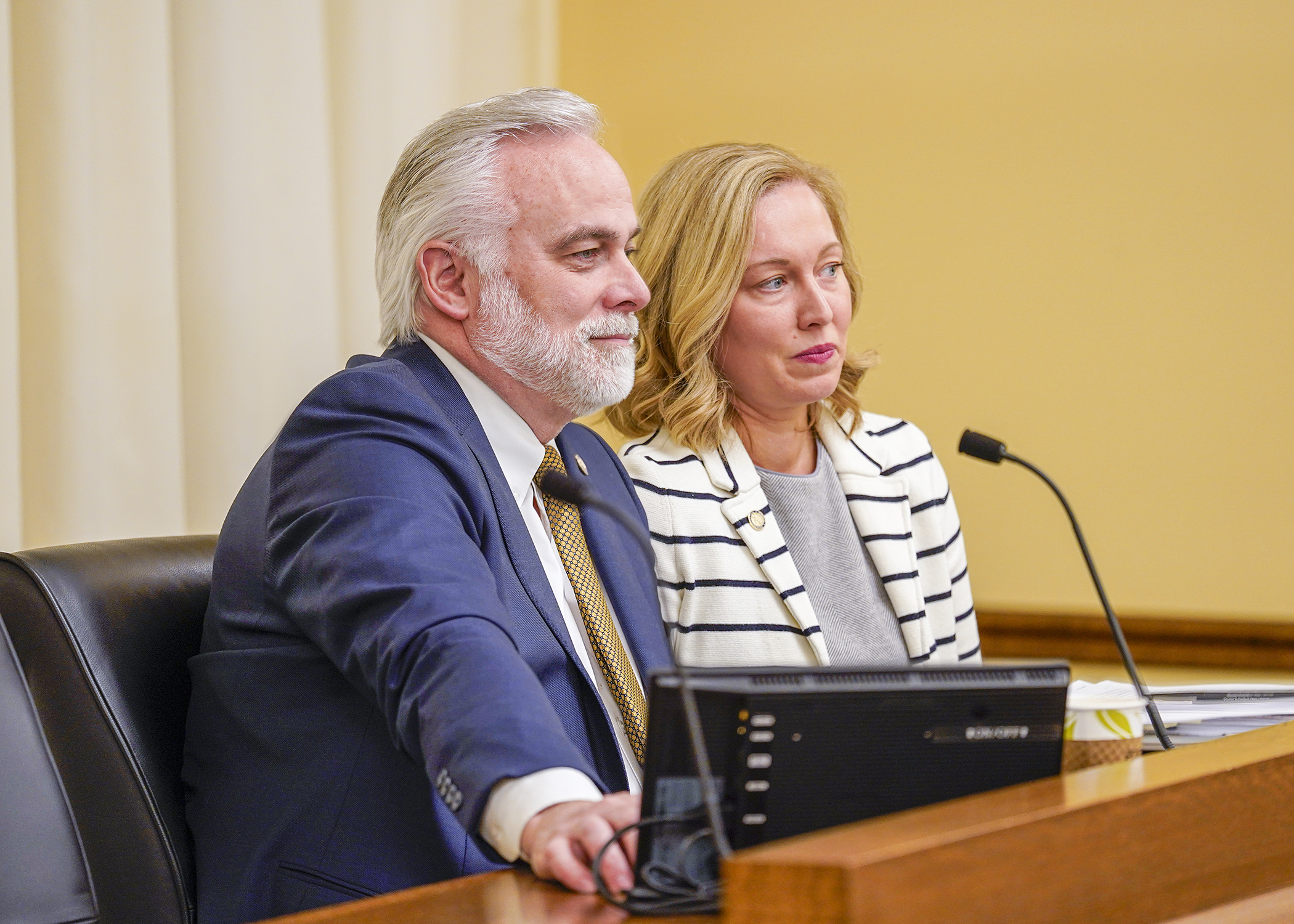House passes bill aiming to close ‘treatment gap’ for those found incompetent to stand trial

The House passed a bill that aims to increase public safety by providing more mental health services to criminal defendants deemed incompetent to stand trial.
Rep. Heather Edelson (DFL-Edina), the sponsor of HF2725, said public safety is put at serious risk when defendants in criminal trials are deemed incompetent to stand trial, some of whom must be released, but don’t receive the mental health treatment they need.
Edelson calls this a “treatment gap” and a failure of the judicial system to deliver mental health services to people who desperately need it, leaving them at high risk of languishing in jail or reoffending.
“The system we have right now is not working,” Edelson said, adding that judges and county attorneys have been “pleading for us to do something” about this issue.
“This bill before you today is a critical step in building an infrastructure that will bridge a substantial gap we have in treatment and public safety within our legal and mental health systems,” she said.
By a vote of 102-31, the House passed HF2725 Wednesday and sent it to the Senate, where Sen. David Senjem (R-Rochester) is the sponsor.
Under current state law, mentally incompetent defendants in misdemeanor cases must be released. And for gross misdemeanor and felony cases, a trial for a defendant declared mentally incompetent is paused and won’t be resumed until that defendant becomes competent.
But for defendants who do not meet the criteria for civil commitment, there are no formal procedures to restore them to competence through accessing mental health services.
To help close the treatment gap, the bill would establish a State Competency Restoration Board in the judicial branch to hire and oversee “forensic navigators,” whose duties would include:
- promoting prevention and diversion of people with mental illnesses and cognitive impairments from entering the legal system;
- supporting defendants with mental illness and cognitive impairments;
- supporting defendants in the competency process; and
- assisting courts and partners in coordinating competency restoration services.
The board would be funded with $22.3 million beginning in the 2024-25 biennium to hire 127 full-time forensic navigators who will work in all 10 judicial districts in the state.
District courts would get $10.1 million in the 2024-25 biennium to pay for additional competency examination costs.
Edelson touted the bipartisan nature of the bill, calling out Rep. Tony Albright (R-Albright) for his work in helping the legislation move through many committees.
And Rep. Brian Johnson (R-Cambridge), whose previous career was in law enforcement, spoke in support of it.
“Law enforcement has been screaming for something like this for decades and I’m glad that it’s finally here,” he said.
Edelson said the bill incorporates many of the consensus recommendations issued in February 2021 by the Community Competency Restoration Task Force established by the Legislature in 2019.
Related Articles
Search Session Daily
Advanced Search OptionsPriority Dailies
Speaker Emerita Melissa Hortman, husband killed in attack
By HPIS Staff House Speaker Emerita Melissa Hortman (DFL-Brooklyn Park) and her husband, Mark, were fatally shot in their home early Saturday morning.
Gov. Tim Walz announced the news dur...
House Speaker Emerita Melissa Hortman (DFL-Brooklyn Park) and her husband, Mark, were fatally shot in their home early Saturday morning.
Gov. Tim Walz announced the news dur...
Lawmakers deliver budget bills to governor's desk in one-day special session
By Mike Cook About that talk of needing all 21 hours left in a legislative day to complete a special session?
House members were more than up to the challenge Monday. Beginning at 10 a.m...
About that talk of needing all 21 hours left in a legislative day to complete a special session?
House members were more than up to the challenge Monday. Beginning at 10 a.m...